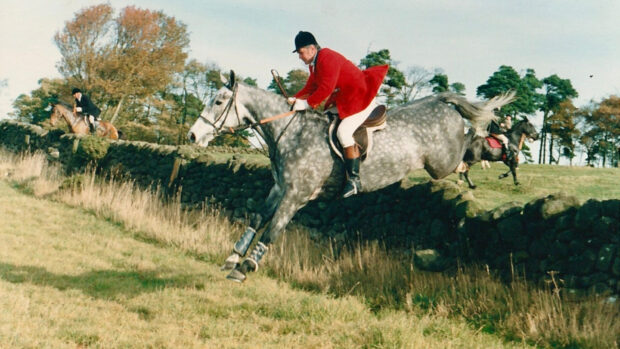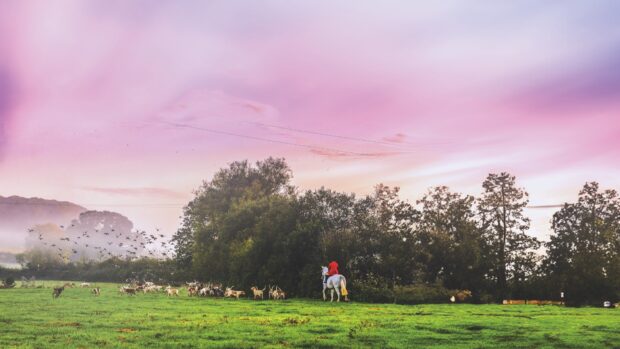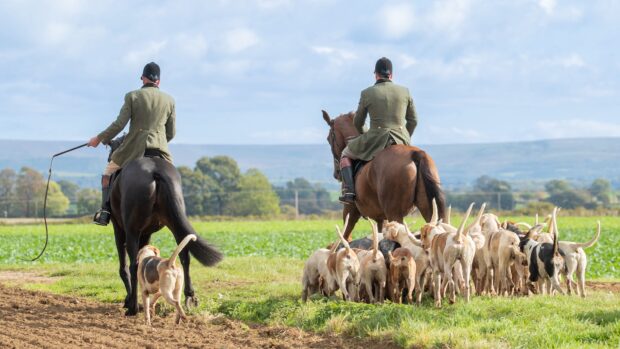Tony Holdsworth worries he will have fewer puppies this year. He has been kennel huntsman for the Beaufort for 25 years and firmly believes that a well-balanced pack is the cornerstone of a good hunt. Which is why he decided to put the same number of bitches to stallion hounds as in the past, regardless of the ban.
“We have put them to prior to the ban and after the ban, and if we won’t end up with the same number of puppies it is purely because [the bitches] have not been as obliging as in the past,” he explains. “You can’t do without an age group or you will end up with an unbalanced pack.”
Despite his rock solid convictions, however, Holdsworth is aware that other kennels are not following his footsteps. “Lots of people have said they are not going to breed as many,” he says.
Because there is a delay of just under two years between the time bitches are put to stallion hounds and the time young hounds join the pack, having a sound breeding strategy is vital for the future of a hunt. Since the ban was enforced last February, however, packs have been plagued by unprecedented uncertainty. Should they continue breeding? And how many litters?
The Master of Fox Hounds Association has advised hunts to breed fewer numbers, but keep breeding nonetheless. “Our advice is that they should breed responsible numbers,” says MFHA director Alastair Jackson. “Obviously they should breed [fewer] hounds than normal, but they should maintain key breeding lines and enough hounds should be bred to be prepared for the repeal of the act. Packs who used to breed four litters, for example, may breed two.”
Jackson is convinced the ban will soon be history and urges hunts to ensure the future of their kennels. “What would be wrong is for no hunts to breed hounds, because they would have a gap in three years’ time. That’s what happened in Scotland, but they had the English hunts to fall back onto,” he says.
“You have to continue breeding for the future,” agrees Holdsworth. It is a very defeatist attitude to say: ‘we are not going to breed anymore.’ Hunting will only die away if pessimistic people will let it die away. If people want it to continue it will continue within the boundary of the law. And the most essential thing we have to have to do the job is the hounds. That’s the start and end of it. So looking forward to the future, we are going to put to the same number of bitches as in the past.”
The question, however, is not only how many hounds to breed — but how to breed them. Hounds are bred for stamina, endurance, and ability to follow a scent, whereas life after the ban may require them to develop different skills, such as speed. Jackson says that at this stage the MFHA doesn’t believe hunts should do anything different.
“We consider that keeping hunts going the way they are at the moment is [a] temporary [arrangement], looking towards a repeal or alteration of the act, so [hunts should] breed to the same skills.”
But make no mistake. Jackson thinks the future of foxhounds hinges on getting rid of the ban as soon as possible. Hounds are the oldest chronicled breed in Britain, with a Kennel Stud book that dates from 1800, although some lines go back another century. They are not a species at risk — there are some 14,000 registered with the MFHA at the moment.
However, says Jackson, “if the act is not repealed, the breed would disappear, because you need very few hounds to keep draghunting. If hounds were bred just to drag hunt or for show, they would alter drastically.”
For a breed which has survived momentous social changes, the industrial revolution and two world wars, it would be an inglorious end.



